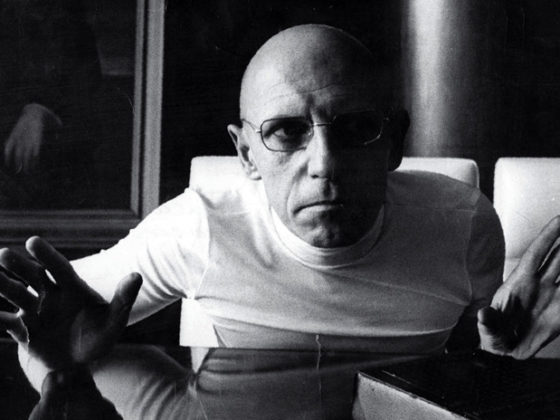I get a lot of questions about Critical Social Justice and related topics, and I try to do what I can to answer them. Sometimes, the questions I receive are so useful in terms of helping people understand the important points being asked about, that I wish I could share them with everyone. In service to that, I’ll experiment with a series called “James Explains” in which I will answer ask-me-anything sorts of questions either in articles or in podcasts. If you have a question for me and are comfortable seeing it published (with or without your name), send it along. Maybe the answer will be useful to building the discussion.
I recently received the following note:
Hey man, great work! I just read your entry on health equity. Due to the health inequalities I saw first hand as a doctor, I decided to study them and try to understand how to narrow the gaps and shit like that. However, the more I studied them (I even did an MSc in that), the more I read and the more people I talked to from the field, I realized that there are a lot of good concepts (like, “let’s try to narrow the gaps, mainly by lifting the disadvantaged and not by f-ing up the rich”) mixed with a lot of woke, communist, virtue-signaling, ‘oppression everywhere’, ‘white people are evil’ crazy bullshit!
Now it’s difficult for me to keep my mind focused on being motivated to rationally improve health equity without wanting to throw the baby with bath water because of all the bullshit that is in the air (I mean there are several academic that are quite rational and balanced and try to think of their own biases, but a lot of them are just leftist ideologues that write a lot of crap that sounds good and is accepted “because of oppression”. At least that’s how I see it in my humble opinion.) Do you think we can reduce health Inequalities? Should I be a more balanced voice in that field? Will they wanna kill me for that? Any advice for a younger bro? Thanks so much man and keep on with the good work.
Reneé
Here’s how I replied:
Hello Reneé,
This is a doozy of a set of questions, and these are important questions to answer. To jump straight to it, I’m with you. I am also motivated to rationally improve health “equity” (let’s bracket that word for a minute) without throwing out the baby with all this critical bathwater. You’re absolutely right that there’s a lot of important stuff going on here that gets mixed in with a lot of woke, communist, virtue-signaliing, paranoid “oppression everywhere,” vengeful “white people are evil” crazy bullshit that isn’t helping anything (and is probably making things worse).
So let’s get to the heart of your questions. Do I think we can reduce health inequalities? Yes. I definitely do. I think we have already done so quite successfully over the march of the last several decades, and I think we can continue to do so in ways that are realistic, evidence-based, and not ideologically driven, beyond a basic “ideology” of fairness, equality, and a genuinely just society. I’m willing to go further and say that we can also reduce health inequities, and that it’s reasonable to do so in some cases, so long as we’re really careful and really honest about that word and what it means.
Let’s clear it up before I go any further. We all know what equality means: citizens have equal opportunity and, so far as a lot of things go, equal access to the resources and opportunities of society. We don’t all know what equity means, and it’s not the same thing. Equity means looking at equality through the wrong end of the telescope. What I mean by that is that equity seeks to determine if there is really equal access and equal opportunity by assessing if there are equal outcomes, and if there aren’t, it seeks to adjust the shares of access and opportunity to make the outcomes equal. That is, going back to the formal definition of social equity, equality means that citizens A and B are equal; equity means adjusting shares so that citizens A and B are made equal. In that sense, I think equity is sometimes justified but only under certain circumstances that are pretty narrow and very compelling. Otherwise, equality (of access, not outcome) is what we should be shooting for.
Indulge me a minute longer here to explain why social equity is thought of this way (and especially in the Theory of Critical Social Justice, as I call it). Equity is thought of this way because of a fundamental belief that everyone, every group, etc., is all the same (reasonable enough at first blush, almost), and that the only reason there could be differences in outcomes is because there are somehow prejudices, discrimination, disenfranchisement, etc., operating along the way somewhere in the whole system (of everything) that make outcomes different. Because this is a fundamentally multicultural, group-identity political, and culturally relativist view of the world, it cannot be the individual choices of people within their own cultural and subcultural milieus that is responsible. It must be some kind of systemic oppression, and that must be rooted out and overthrown without ever telling anyone who is classified as “oppressed” or “protected” that they have to change or take responsibility for anything, as that would be blaming them and increasing their oppression.
As a last indulgence, let me talk about health equity for a second too. The most coarse approach to health equity normally is repudiated in their literature but has come up under the pressure-cooker of Covid-19, and that’s adjusting shares at the point of medical delivery. This can include prioritizing members of “minortized” races to make up for systemic racial issues or even restricting the care of members of “dominant” groups, again, to get the numbers to come out more “fair” on the back end. (Here’s why I said it’s like looking at the issue through the wrong end of the telescope.) Most people aren’t going to accept this as fair, and I don’t think it’s a realistic way to “adjust shares” to reduce healthcare inequalities. In the end, it will achieve “equality” (of outcome) by creating a less effective system that does a worse job overall. Premiere non nocere. On the other end of the spectrum, it’s just a lever to try to get society to change to be more “antiracist,” by which it means “critical” in the sense of critical theory and critical consciousness. That is, it’s a lever to push their political view onto more people, which also doesn’t really produce healthcare equality. It just advances their political power.
Now that we understand the terms, we can jump into the first question again. I do think we can reduce both health inequalities and health inequities, yes. By that, I mean I think we can take steps that ensure greater access to healthcare while overcoming certain hurdles that may influence quality of care and attitudes about care (which have the direct effect of leading people to forgo access even when it’s available). By this second part, I primarily mean that there are ways to help people who don’t trust the medical system, perhaps because of historical mistreatment (the Tuskegee Syphilis Experiment is often cited here) or language barriers, improve their trust of the medical system. There are also likely to be outreach programs that help overcome cultural mores like preferring “traditional” medicine approaches to scientific medical care.
Access is mostly an economic question, I think, and while my goal is rarely to talk about politics, there are certainly political steps that can be taken under a broad rubric of “health equality” that can help fix those problems (here, I’d rather not use the term “health equity,” even though they rely upon economic equity, which is readjusting shares through, say, social insurance programs or baseline medical care provided through state payers). A lot of inequalities and inequities in health and healthcare are really just knock-on effects of the same in economics, which has nothing much to do with identity politics, at least not at the scale we’re constantly led to believe. The question becomes, “can we get people to the doctor, and can they afford it?” along with other similar questions of relevance to health like access to healthier foods, safe places to exercise, education/outreach, and so on.
Frankly, even though some of this does fall under social insurance programs (which the political right tends to call “communism” or “socialism”), and these are technically equity programs, the Critical Social Justice crowd does massive damage to its own project here, in my opinion, because it only uses economic disparities as a prop for identity politics. So, if black people are poorer on average than white people, and this has negative outcomes that end up disproportionate because poverty itself is disproportionate, rather than focusing on the (probably causative) poverty aspect, Theory only wants to say the poverty is more proof of racism, which is vague and systemic, touching all aspects of one’s life, and exists in a kind of timeless continuum that resists progress and change (because recognizing genuine progress is bad news for identity politics, one must surmise). So, somehow in their obsession, the Critical Left manages to steal its own thunder and piss it away here. Some baseline reasonable measure of economic equity in this regard is the easiest and most sensible equity argument to make regarding health or pretty much anything else. Again, so much so that I’d prefer to file this under “health equality” because it’s so intrinsic to access to healthcare and health-relevant efforts.
The cultural issue is much thornier and more difficult, but again, this critical approach shoots itself in the foot because it cannot allow a meeting halfway. I find it all really tragic. Rather than working with communities to help increase trust and willingness to see doctors and find ways to bridge language gaps, what we tend to see under “health equity” is a demand to remake the medical and extended healthcare system in a way that is ethnically redundant and fairly segregated. (And, here, I don’t necessarily mean racial communities, as they would imply, but actual existing communities that might be entirely one ethnicity or another but still more realistic and granular than “races.”) We also see calls to completely reorganize society itself so that it’s “not racist” (or, really, “antiracist”), which is not possible and works as an infinite cash-cow for demanding more antiracism activism, all on their critical terms.
I think we can actually make progress on those things without having to use their very divisive approach to identity theory and identity politics, though, and I think we were and are in spite of all this endless nauseating bullshit they constantly feed us about how theirs is the only way (and how nothing is ever good enough). This leads to answering part of your second question, if by asking me if you should be a more balanced voice in the field, you mean how you might go about it. The answer to that is to believe it’s possible and just start doing the things that need to be done. Get out of the Theory; leave the vague BS about “achieving equity” behind; and if you see a problem that genuinely needs solving, start doing the thing and solving it. So long as you do so from an approach that genuinely seeks to find out the truth of the situation as well as possible and to work from that truth, rather than putting the agenda first, you can avoid falling into the trap of doing a political game that pretends to be a medical (or other) game.
Will they want to kill you for this? Yeah, probably, metaphorically speaking, anyway. Their game is a power grab. That’s all it is, and not just any power grab but a really lazy one done by people who tell everyone to “do the work” but never really want to do any work themselves. Getting stuff right is work. It’s hard. These people mostly just complain and want other people to “do the work” around them to make their broken vision come to life, which they’ll then complain about, usually blaming the people who “did the work” in the first place.
So, people who are actually doing the thing, and especially people who are willing to go out there, do the thing, and take whatever reality is telling them (including that sometimes, it’s not racism, or that installing more “diversity” isn’t the answer) usually piss these people off because it completely disempowers their entire line of bullshit. It has to be done, though, and someone has to take the flak. Whoever it is, and maybe it’s you, needs to do it and should feel proud of it because you’re doing the thing that needs doing and you’re doing it right in spite of their bullying (which they can’t stand because their ideas are so out-of-step with reality).
So, that’s my answer and my advice. Yes, we can reduce healthcare inequalities, and we can even reasonably reduce some healthcare inequities (non-economic ones really come up significantly around disabilities, by the way, as they have obvious physical impediments and not even just financial ones that can restrict access and opportunity). And it can be done by doing the thing and doing it honestly, deferring to evidence, gathered and analyzed rigorously and accepted for whatever it shows, even when it goes against one’s politics or agenda. These little politicos and bullies won’t like it, but their world won’t work, so the moral high ground lies in not ceding to them and doing the thing and doing it right. If you have the backbone for it, my advice is that you should do it.













3 comments
A question that keeps being evaded is, “where did the inequity come from?” This seems more dishonest in that it looks to approach a problem without analysis of the source. Yes you hint at it , but ultimately look to dismiss it because it is divisive, not because it is not true. This makes divisiveness avoidance or neutralization of accountability of origin the prime directive from which to start resolution. This is couch in the “several decades of progress..” assertion. Here the acknowledgment of progress is both a back pat and a concession that things were indeed uneven .
The mere necessity of several decades to achieve progress , yet needing further effort denotes both pervasiveness & gravity of the problem & the presence of resistance or division in addressing such forthright. Taken at face value, disparities in such a fundamental and vital aspect of societal life, healthcare, by deduction points to the logical conclusion that harm & partiality in areas of far less instinctive benevolence will surely be found. And they actually are. Too progress there might easily be of lower priority and receive far less energy than fairness In access and quality of care.
Yet the awake evasion of charges against historically clear adherents to partiality along racial lines , seeks to obscure the generational impact of grooming in such from pulpit to presidency over centuries through 1970’s.
James Lindsay is quite clear of the implications of a largely Christian nation on what he holds dear in the atheist world view. He is well acquainted with the impacts of holding such a view in a Christian dominant culture. That a view of lgb , porn , sex work, abortion & marijuana affirmation. Even positing that in his home state he would do best to keep the fact he is a liberal quite. Being an atheist was far less damning. Such is a newer reality. 20 years earlier, atheism would have been much worse. Nonetheless, James knows that systemically such views were discriminated against. Even litmus test for holding office, employment, housing , marriage , adoption. Some on immutable state of lgb.
So if a white person eats Mexican food or soul food, it’s cultural appropriation, but different foods in different cultures vary in their carb/protein/fat ratios, and that has a profound effect on things like insulin levels, and as a result, health.
So if different cultures eat different foods, their health outcomes will be different.
You state:
‘In the end, it will achieve “equality” (of outcome) by creating a less effective system that does a worse job overall’
I can see how this can be seen as completely unfair based on merit when considered against, say, an admissions policy for academic study. I’m struggling with this statement in a limited capacity health care system. Since the system itself will perform the same whatever the inputs all else being equal, merit (or human worth ), seems to have no meaning here?
Are you arguing that a the less effective system, doing a worse job for society as a whole will be produced by persueing equity outcomes; because it shifts focus from equality of input and the changes that need to be made to the system as a whole?